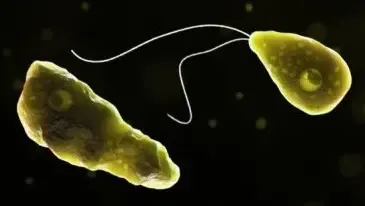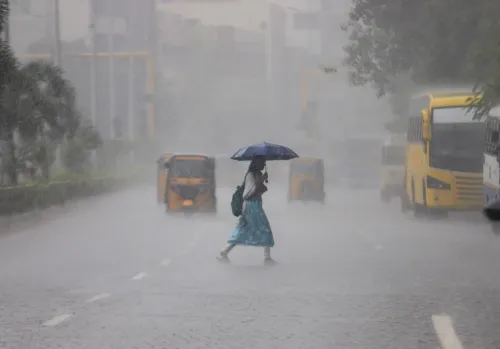Is There a Brain-Eating Amoeba Crisis in Kerala?

Synopsis
Key Takeaways
- Six deaths from amoebic meningoencephalitis in Kerala in one month.
- Inability to trace the source of the infection complicates control efforts.
- Health officials are enhancing monitoring and public awareness.
- The infection is caused by 'Naegleria fowleri'.
- The illness is not contagious and cannot be contracted through drinking water.
Malappuram (Kerala), Sep 11 (NationPress) A 47-year-old man from Malappuram district in northern Kerala has succumbed to amoebic meningoencephalitis, marking the sixth fatality attributed to the brain-eating amoeba in the state within a month.
Shaji, a resident of Chelempra Chaliparambu in Malappuram district, was admitted to the Kozhikode Medical College Hospital (KMCH) on August 9 as his health rapidly declined.
This incident represents the second death from this infection this week alone.
Notably, Shaji had pre-existing liver issues and did not respond to the treatment provided, according to local health officials.
Health authorities confirmed his passing on Wednesday night, revealing that the origin of his infection remains unknown.
This latest tragedy follows the death of a woman from Vandur, also in Malappuram district, earlier this week due to the same infection at KMCH.
Additionally, two more individuals— a 10-year-old girl and a woman— tested positive for the brain infection on Wednesday following diagnostic tests.
Currently, health officials report that a total of 10 patients suffering from amoebic meningoencephalitis are receiving treatment in various hospitals, including KMCH, with one patient's condition described as critical.
The inability to identify the source of the amoeba has hindered health officials' efforts to manage the outbreak in the state, particularly in the northern region, where six deaths—including those of a three-month-old infant and a nine-year-old girl— have been recorded over the past month.
The series of fatalities has prompted health authorities to enhance monitoring and public awareness initiatives about this disease, which is generally linked to waterborne amoebas.
Amoebic meningoencephalitis is a severe brain infection caused by a free-living amoeba, most commonly 'Naegleria fowleri'.
As per health officials, the organism typically enters the body through the nose when an individual swims or dives in contaminated freshwater, subsequently traveling to the brain, causing inflammation and tissue damage.
This illness is not contagious and cannot be transmitted through drinking contaminated water. Experts have suggested that the recent increase in cases might be associated with climate change and the need for improved environmental monitoring.








